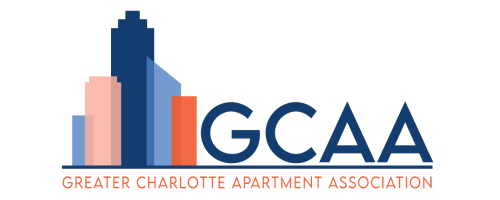Landlords could face steeper fines, new requirements as city updates housing code
Landlords who violate minimum housing standard requirements could be hit with bigger fines as part of a set of proposed new rules and revisions to Charlotte's housing code. But some worry the proposed regulations could inadvertently hurt the city's lowest-income residents.
Changes to the housing code have been under review for months by the city's housing and neighborhood services department, which includes code enforcement. The overhaul is intended to provide more specific and clearer language, as well as new requirements, around life-safety issues for housing occupants, particularly in the wake of deplorable living conditions reported at apartment complexes like Lake Arbor in west Charlotte.
Housing code requires homeowners and landlords to meet certain basic standards for health and safety — violations can include a range of things like broken windows, inoperable smoke or carbon monoxide detectors, pest infestation, unsafe wiring, plumbing defects and structural integrity issues.
City inspectors have the authority to order owners to make repairs in the event of a violation or, in extreme cases, order a structure to be demolished. Owners are generally given two days after a violation has been issued to make repairs.
If compliance isn't met after that time, the city is now proposing a $500 first-day penalty, followed by $100 for each additional day of noncompliance. The current penalty is markedly less: $100 for the first day and $10 each day afterward.
"Hopefully this would be a measure that citizens and owners would take seriously and spur them into quicker compliance," said Jane Taillon of the city's code enforcement department during a neighborhood development committee meeting on Wednesday.
Proposed recommendations to the code include about two dozen new requirements and amendments. Among them:
- Windows on houses must be weathertight and only made of glass.
- Kitchen exhausts must be operable and vented to the exterior of a building.
- Kitchen and bath fixtures must be secured and sealed to eliminate water intrusion.
- Portable heat sources cannot serve as primary heat sources in a unit.
- Crawl space hatchways and doors must be maintained to prevent rodents, rain and surface drainage from entering.
- Ceiling finishes and trim must be free of stains or moisture damage.
- Roof drains, gutters and downspouts must be maintained to move rainwater away from a building.
- Amending language to require repainting for buildings that have peeling, flaking or chipped paint.
- Countertops and cabinets must be constructed with or covered by a "non-absorbent" material.
Unintended consequences?
"One of our goals is, if a property owner is going to provide something to a tenant, it needs to operate properly," Taillon said. The city has hosted in-person community meetings and conducted online surveys to help inform the proposed code changes.
But the proposed rules have some industry and advocacy groups worried they could negatively impact low-income residents living in naturally occurring affordable housing, or NOAH — below-market-rate housing units that aren't subsidized by public dollars.
Several organizations — the Greater Charlotte Apartment Association, the Real Estate and Building Industry Coalition and affordable-housing advocacy groups — have requested the committee and staff to press pause on moving the proposal forward until questions are answered and implications behind the proposed provisions are examined in greater detail, a motion ultimately approved by the committee on Wednesday, as no vote was taken.
Kim Graham — executive director of the GCAA, a multifamily trade association — said her group "fully supports" the spirit of improving the housing code and ensuring that all residents are living in safe, non-hazardous conditions.
But some property managers and landlords that GCAA represents have concerns that the provisions would result in additional violations that don't impact safety or health but will cost money and impact renters. Making repairs that are, for example, aesthetic instead of safety-related could, over time, drive up rental rates at NOAH properties, Graham said.
"(Affordable housing) is not always going to be bells and whistles and cosmetically beautiful," Graham continued. "We want to make sure we don’t end up putting people on the street because property owners can’t afford (to make cosmetic changes as a result of the ordinance)."
Graham gave an example: If a proposed new provision that requires masonry on houses to be bonded with mortared joints passes, a small brick bungalow in Dilworth or Chantilly that's missing a few bricks but is structurally sound and affordable to a resident earning 60% area median income may be considered in violation. That would require a fix — and if costly, that turns into a higher rental rate imposed by the landlord to make up the difference.
There's also concern that different city inspectors may interpret certain new provisions differently, resulting in unpredictable consequences, Graham continued.
There are proposed changes to the code process as well. Currently, multifamily enhanced rental inspections are discretionary, but the city is proposing that, if a percentage of units at an apartment property are inspected within a certain timeframe, a review of the entire property will be initiated. It's not clear what unit percentage or timeframe is being considered.
Council and committee member Larken Egleston similarly questioned during Wednesday's meeting whether proposed changes relating to things like cabinetry and exterior paint would result in "mission creep," especially if there are different interpretations by inspectors on a case-by-case basis.
Ed Driggs, another council and committee member, said he was also concerned about potential unintended consequences the changes could have on NOAH.
"If you spruce the place up, it costs more to keep it that way — you can get more in rent; the market will pay more for that," Driggs said. "These ordinances should be a safety net and we should be aware of what it would cost and what it would mean to impose these."
He added some violations are caused by tenants, requesting further analysis on the role of tenants and whether landlords would be held responsible in those cases within the context of the proposed changes.
The committee agreed to continue discussing the proposal further next month and, in the interim, meeting with trade groups like GCAA.
Questions persist over mold
A major complaint lodged by tenants against landlords is over mold — in fact, the issue was raised during community meetings as one that needed to be better addressed by the city.
But there's a lot of gray area over the consequences of mold. There's no clear standard on how to quantitatively measure its danger level and there's murkiness over jurisdiction — how it's dealt with in housing code and other legislation.
Gibbie Harris, Mecklenburg County health director, said during Wednesday's meeting that national health organizations have not established guidelines for what type and amount of mold is hazardous to a person's health.
"The challenge for us as environmental health specialists is that we don’t have any guidance — it’s subjective," Harris continued.
She added her department — which handles health inspections for facilities ranging from swimming pools to restaurants to tattoo parlors, but not multifamily properties or houses — is already challenged with keeping up with current growth and subsequent demand for inspections.
Harris said it will be critical for both the city of Charlotte and Mecklenburg County to come up with a solution in tandem to address mold when it impacts the health of residents. Some city staff said it's possible that ordinances could be modified to better address mold, but certain actions may have to go to the state, as several public-health laws are driven by North Carolina statutes rather than local policy.
In fact, county environmental health specialists are agents of the state, Harris said. And while they undergo at least a year of training and must be individually certified in inspecting different kinds of facilities, there's no specialized education in mold, a sentiment that Pamela Wideman of the city housing and neighborhood services department said is also true of the city's code inspectors.
Code enforcement at the city level instead focuses on potential causal factors, such as poor ventilation, rather than mold itself, Taillon said.
"It’s an issue that needs to be addressed," Harris said. "We’ve got to figure out how to do it. We've got people living in substandard housing situations."
Several committee members and city staff at the meeting referenced conditions at the Lake Arbor apartments. Council member and committee vice chair Braxton Winston said he wasn't able to breathe well shortly after entering a unit at that property said to contain mold.
"I don’t care what training you do or don’t have, you know there’s a problem there, but we don’t have the jurisdiction to fix it," Winston said.
Written by Ashley Fahey, Real Estate Editor Charlotte Business Journal

